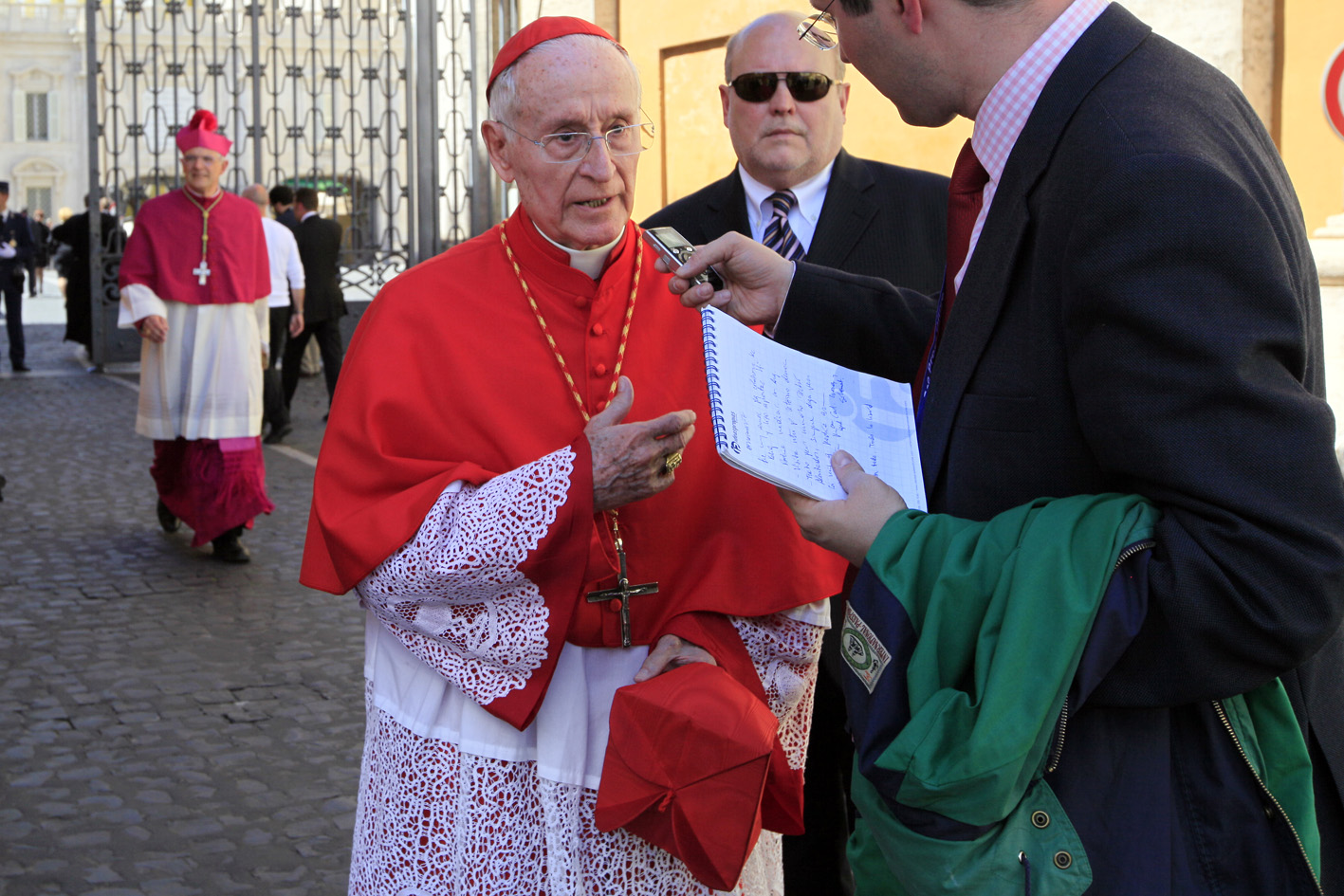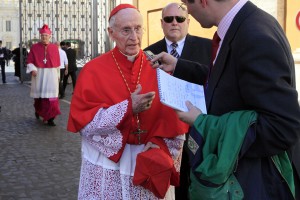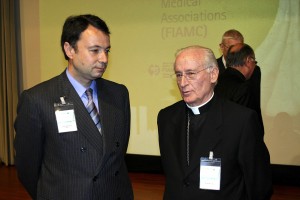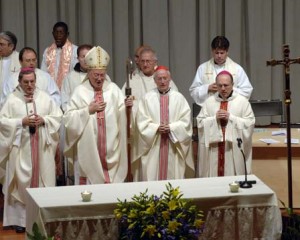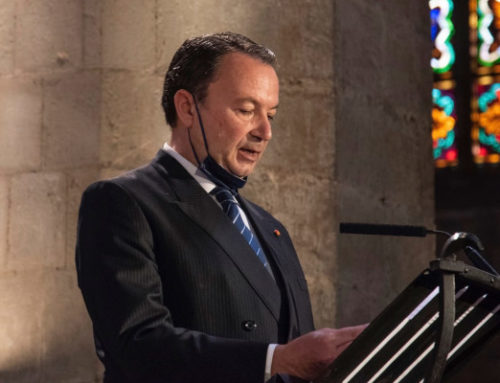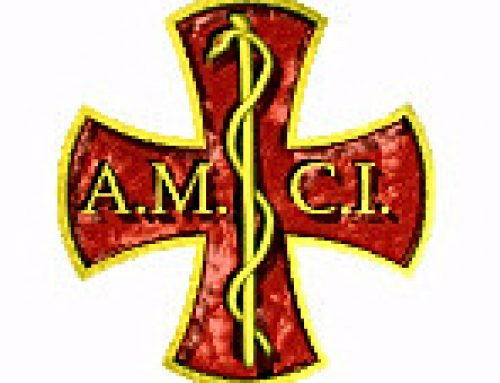El Cardenal Ricardo María Carles Gordó, ha fallecido hoy, martes 17 de diciembre, a los 87 años de edad. El Arzobispo emérito de Barcelona tuvo que ser ingresado el pasado 22 de noviembre en el Hospital de Tortosa Virgen de la Encina, a causa de un ictus.
En la Conferencia Episcopal Española fue Vicepresidente de la CEE de 1999 a 2005 y miembro del Comité Ejecutivo de 1990 a 2005. Además, formó parte de la Comisión Episcopal del Clero, de 1972 a 1975, y miembro de la Comisión Episcopal de Misiones, de 1972 a 1978. Por otro lado, fue Presidente de la Subcomisión Episcopal para la Familia (1978-1984) y Presidente de la Comisión Episcopal de Seminarios y Universidades (1984-1990).
Arzobispo de Barcelona hasta 2004
El Cardenal Ricardo María Carles nació en Valencia el 24 de septiembre de 1926. Realizó estudios primarios en la escuela de las Teresianas y secundarios en la de San José de los Padres Jesuitas, las dos en su ciudad natal. Ingresó en el Seminario Mayor de Valencia y a la vez en el Colegio del Corpus Christi, también nombrado “del Patriarca”. El 29 de junio de 1951 es ordenado sacerdote y dos años después se licencia en Derecho Canónico en la Universidad Pontificia de Salamanca.
En 1953 es nombrado párroco y arcipreste de Tabernes de Valldigna y en 1967 es trasladado a la parroquia de San Fernando de la ciudad de Valencia. Actúa como consejero de la JOC y responsable de la formación de los diáconos, posteriormente es nombrado delegado episcopal para el clérigo y consejero diocesano de pastoral familiar.
El 3 de agosto de 1969 es consagrado Obispo de Tortosa. El 23 de marzo de 1990 es nombrado Arzobispo de Barcelona, donde crea un Instituto de Teología Espiritual. El día 26 de noviembre de 1994 es creado Cardenal con el título de Santa María Consolatrice al Tiburtino. Al año siguiente, el Papa Juan Pablo II lo nombra miembro del consejo de cardenales para el estudio de los problemas económicos y organizativos de la Santa Sede. En el año 2001 y de acuerdo con lo previsto en el Derecho Canónico, presentó la dimisión de su cargo arzobispal, que no le fue aceptada hasta el 15 de junio del 2004. Cuando cumplió ochenta años, en 2006, perdió la condición de cardenal elector.
———————————————————
NOTA DEL PRESIDENTE DE LA FIAMC
El cardenal Carles siempre apoyó a los médicos católicos tanto de Cataluña como del resto del mundo. Tuve la ocasión de acompañarlo a alguno de nuestros congresos y de ser recibido por el Santo Padre con él. Era un hombre bueno y querido por muchos. Lo he visto siempre como un verdadero adorador de Dios. También, pasó parte de su purgatorio ya en vida pastoreando la diócesis de Barcelona. ¡Que tengas un buen Cielo, eminencia!
Dr. José María Simón Castellví
Presidente
Federación Internacional de Asociaciones Médicas Católicas (F.I.A.M.C.)
————————————————————————-
| In the face of the International Conference on AIDS
The Church feels Solidarity with AIDS Sufferers
Before the onset of this illness, there must be correct preventative programs. The Pope has said that ‘it is necessary to insist on the fact that prevention must be at once respectful towards human dignity, and truly efficient, with two objectives in mind: adequate information and education for mature responsibility’. The church desires that both objectives be always respected in our society. ‘Since AIDS is transmitted through sexual relationships, the best prevention, and at the same time more effective, is formation in the true values of life, love and sexuality’ (Mons. Javier Lozano Barragán, in the 26th special session of the UN assembly on AIDS, June 25-27, 2001). The effort in clinical and pharmaceutical investigation, creates a very significant imbalance between developed and Third World countries. We can say that a higher economical level carries with it a higher quality of assistance, and even a higher survival rate. Pharmaceutical investigation obtains legitimate benefits from experimentation. But sadly, these benefits don’t reach the Third World or marginalised groups, due to the high economic costs of the medicines. The experimentation with chemical products uses complex tests. To see the effects of a product, experimentation is carried out which consists in working with two groups of patients. One is given medicine while the other is given a placebo, in order to observe the difference in the evolution of the illness. It is painful to know, that some investigation centres use Third World or marginalised people for this type of test. For these people, life also has full value and meaning. All the sick have the right to be helped. We must never fall into a selective attitude based on elitist criteria. How many people, due to the lack of solidarity in the distribution of the medical and pharmaceutical resources, are doomed to a lack of quality of life and to an imminent death! The passivity of letting people die, shouts at the conscience of citizens. These sick people, when they are in the terminal phase, must always receive palliative care, a privileged form of human and Christian solidarity. With regard to the state, it must be respectful towards the private life of its citizens. But we must keep in mind that human sexuality has dimensions which go beyond the purely private. Indeed, from the exercise of the sexual capacity, social institutions emerge such as matrimony, paternity and maternity. And when this exercise goes against common morality (pornography or public scandal), when it goes against the rights of minors or whenever the use of sex implies a risk for others and, as a result, for public health, the intervention of public authorities is legitimate. † Ricard-Maria Cardinal Carles, archbishop of Barcelona |

